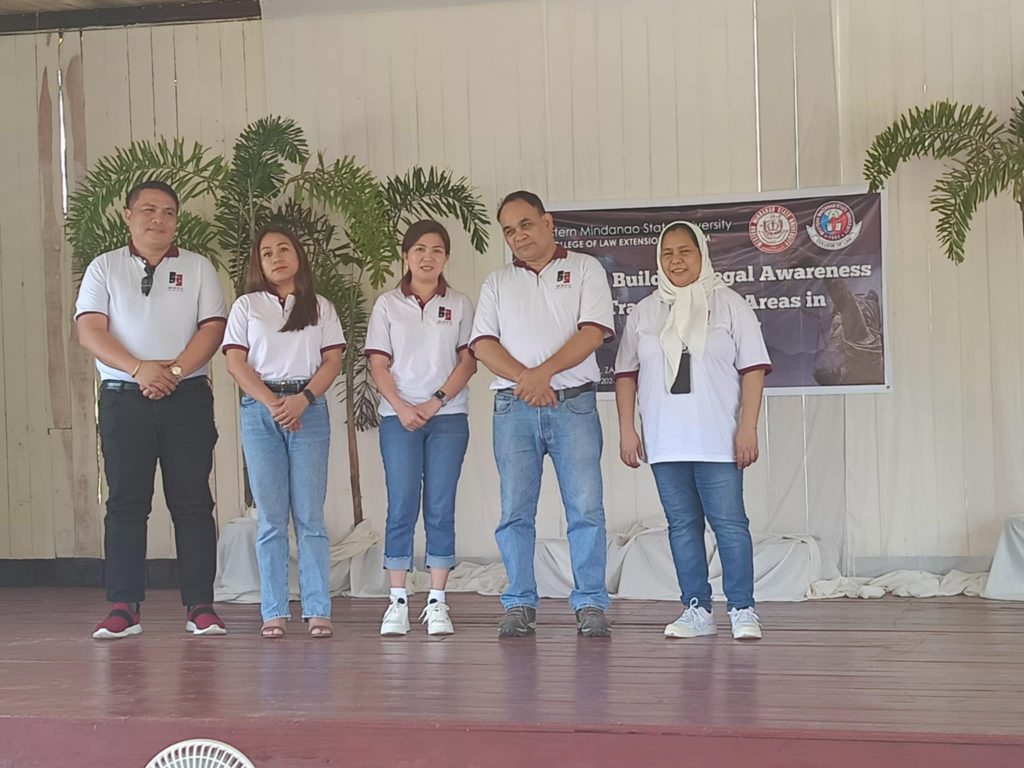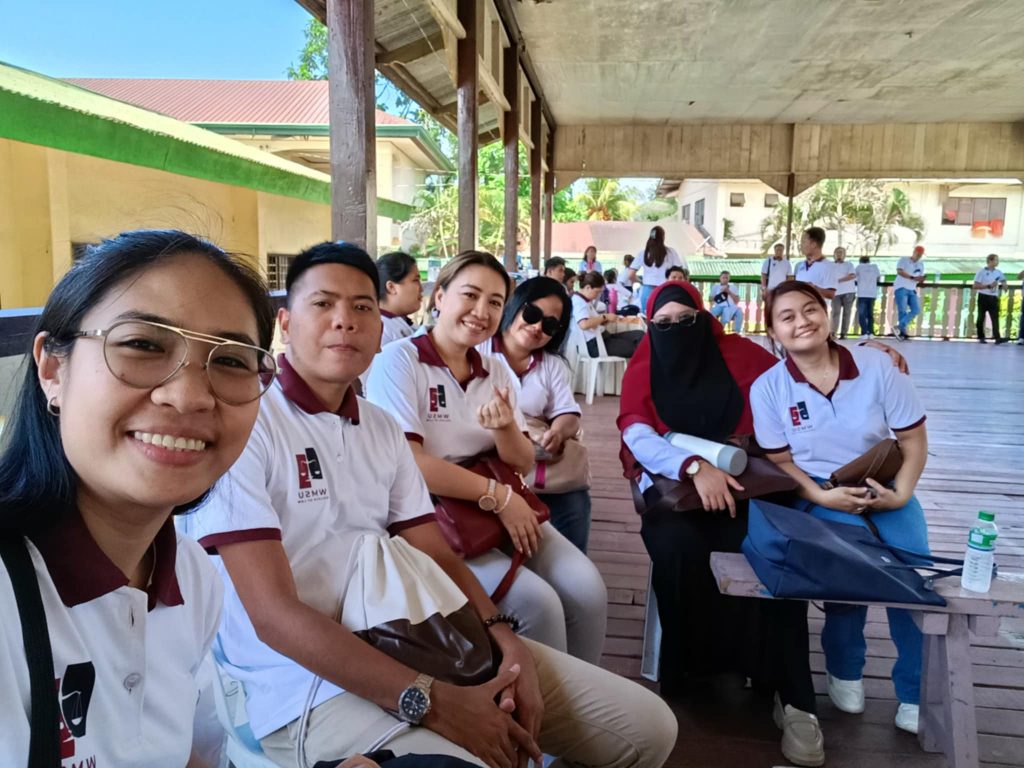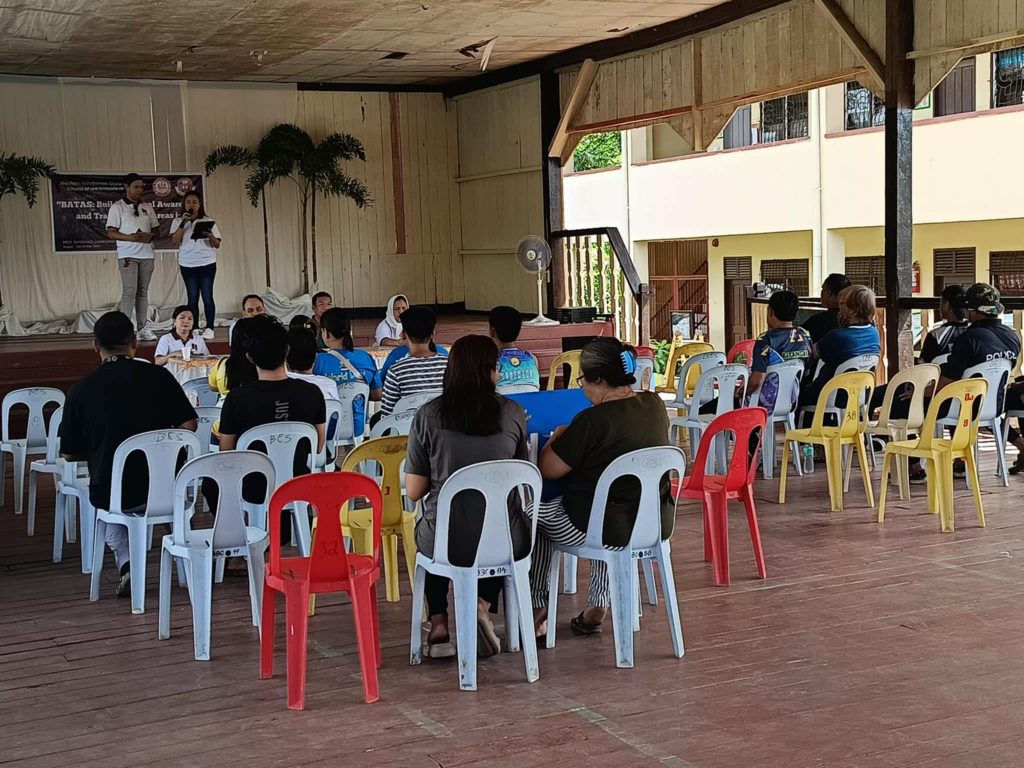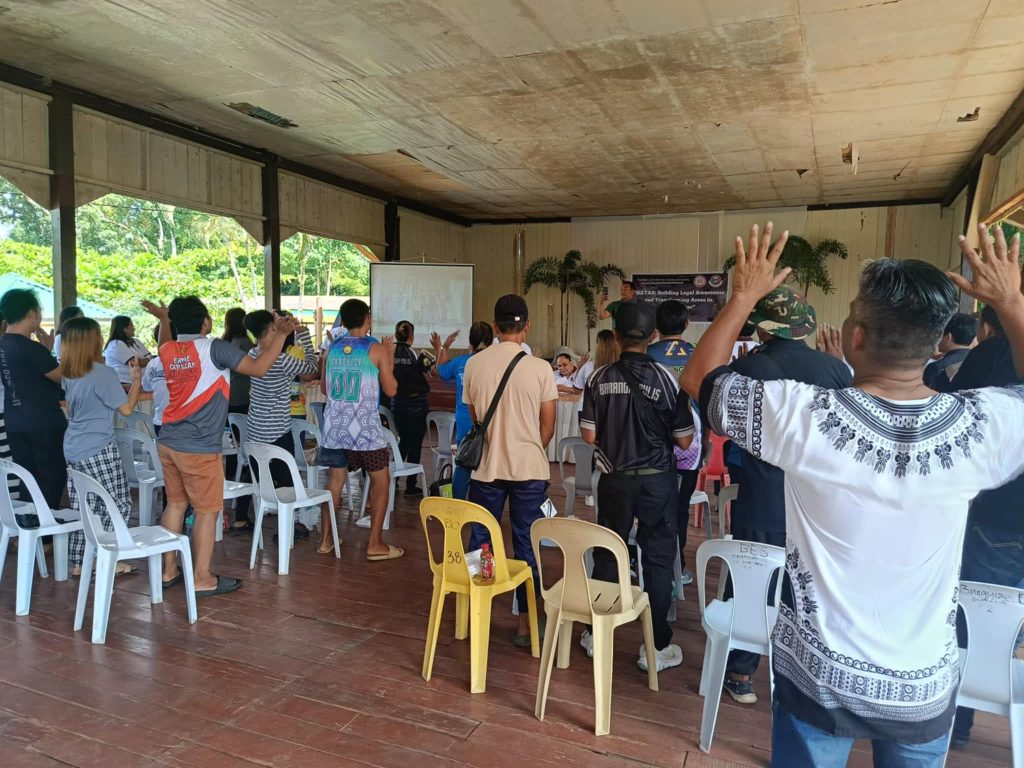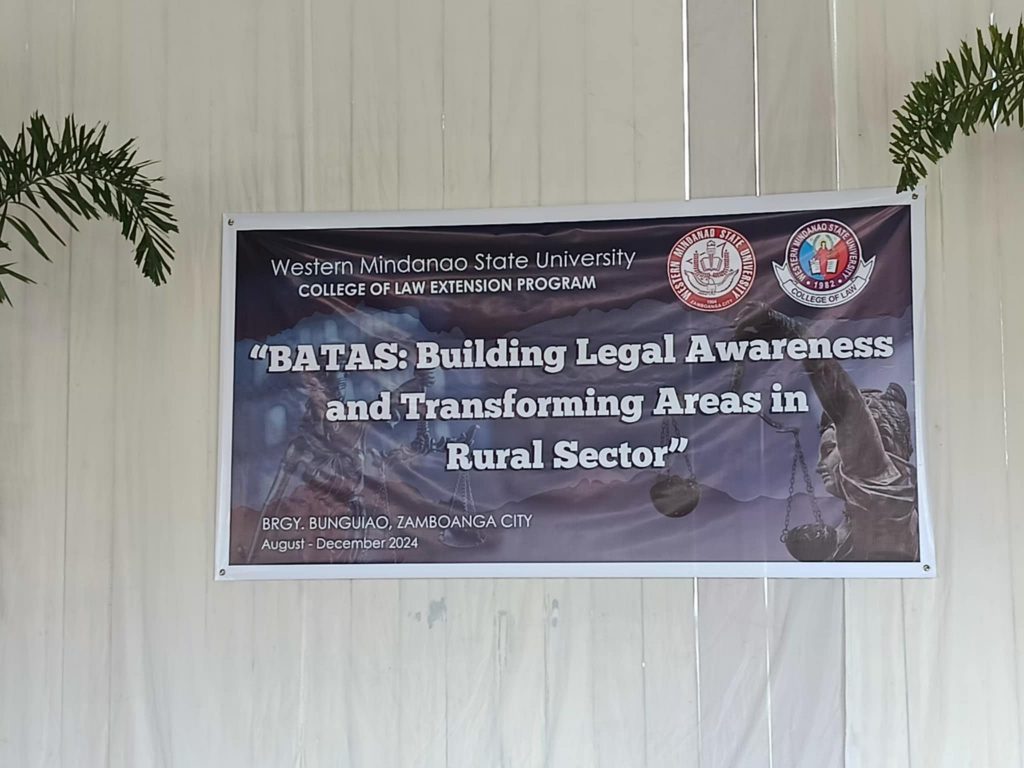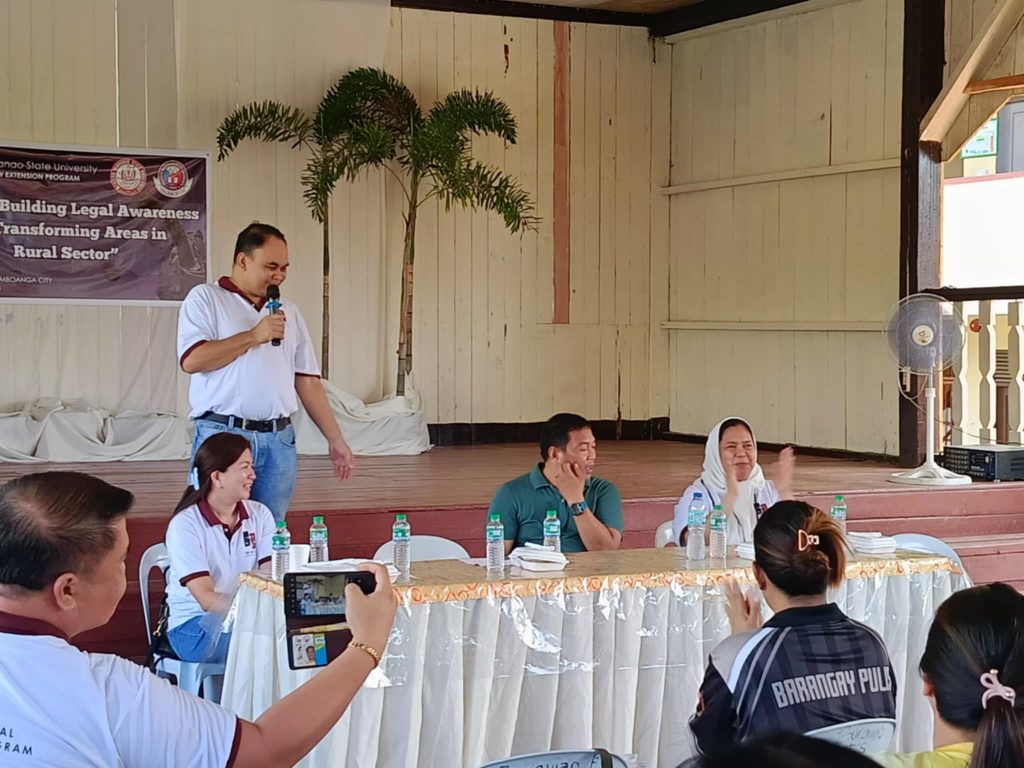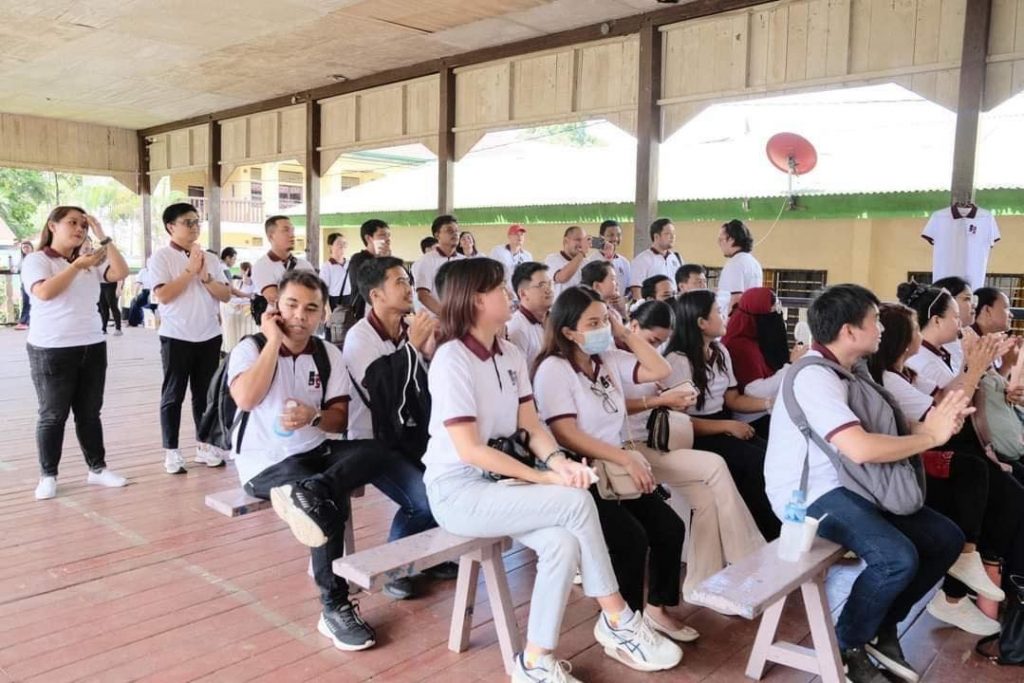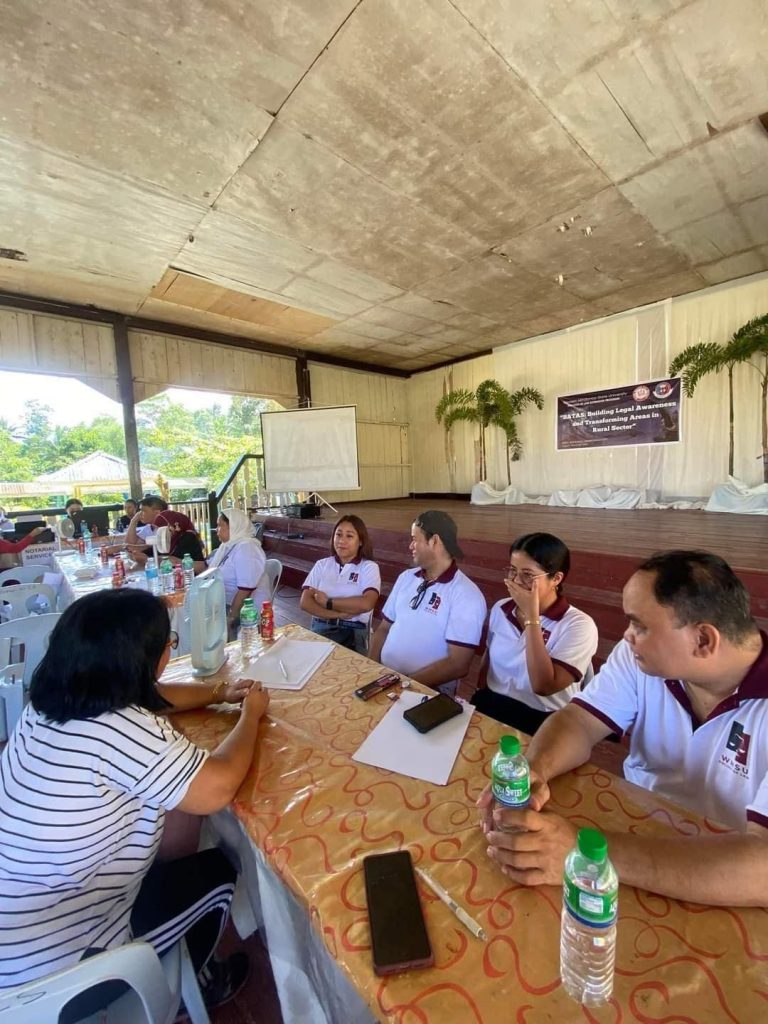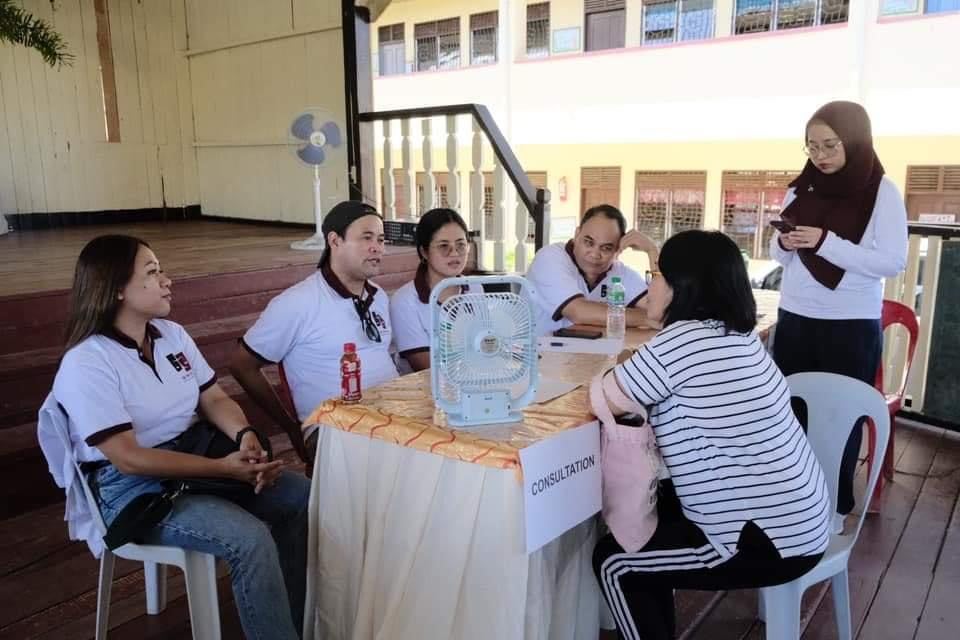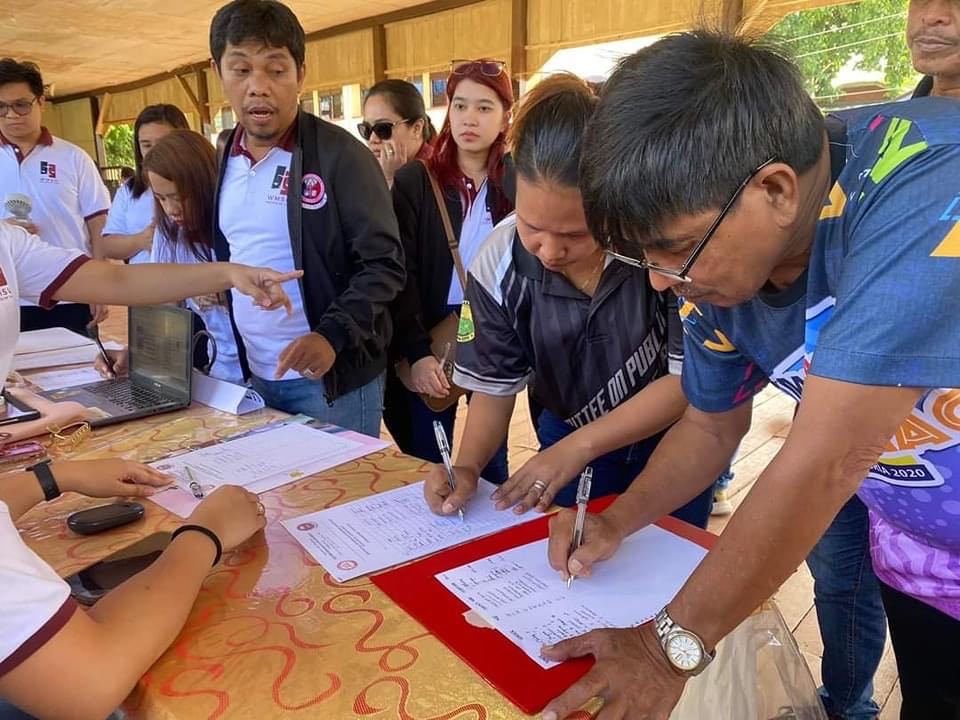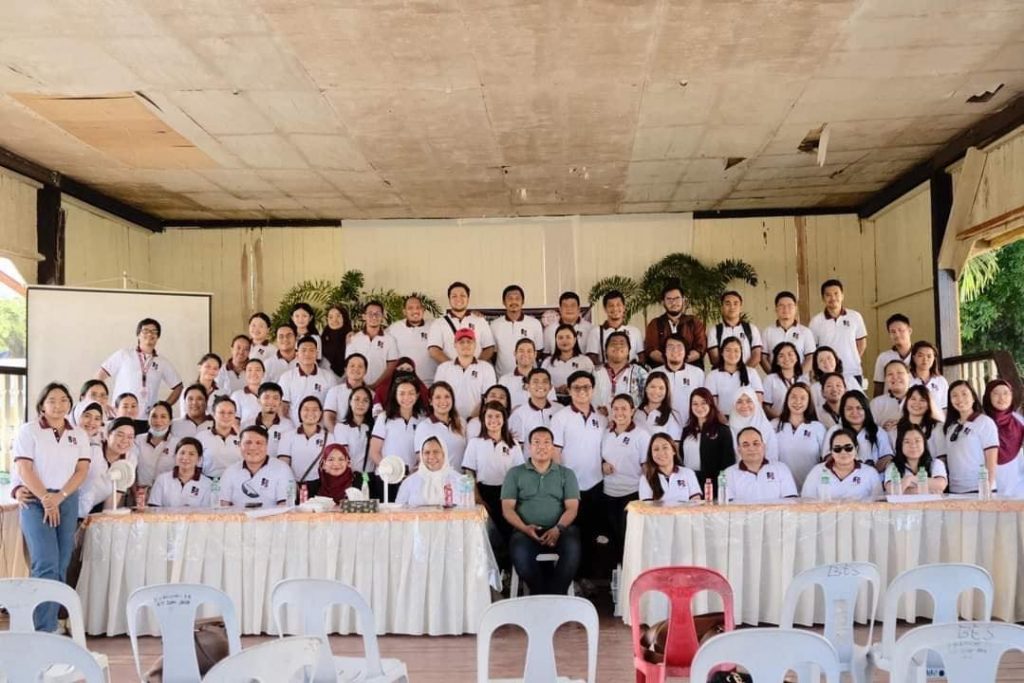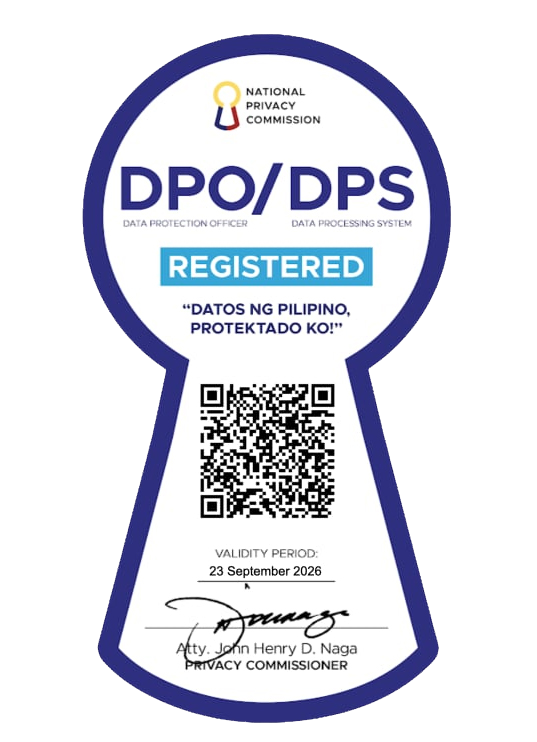The Western Mindanao State University (WMSU) College of Law launched its new extension program called BATAS: Building Legal Awareness and Transforming Areas in the Rural Sector last August 11, 2024. The program, which runs from August to December 2024, is an offshoot of the college’s Clinical Legal Education Course.
The launch event was held in the barangay of Bunguiao and was spearheaded by students from the JD 4A and JD 4B classes, under the guidance and leadership of College of Law Dean Atty. Jules Christian Marcos and CLEP Adviser Atty. Marie Christle Rubio. Other law professors in attendance included Atty. Jihan El Edding, Atty. Irma Mari Rivero, and Atty. Carlo Nabo.
The BATAS program aims to allow law students to practice their skills outside of the classroom setting, under the supervision of their professors. This hands-on experience will give the students a chance to apply their legal knowledge in serving the rural communities.
This extension program is an invaluable opportunity for law students to truly understand the impact they can have on people’s lives. By bringing legal awareness and assistance to the rural sector, it empowers the community and makes the law more accessible to all.
The event was attended by the entire barangay council of Bunguiao, headed by Hon. Nelson Resurreccion, who expressed their gratitude to WMSU for choosing their community to pilot the BATAS program.
The BATAS program is the latest initiative by the WMSU College of Law to bridge the gap between legal education and real-world application. This extension program is institutionally- funded under the supervision of the Vice President for Research Extension Services and External Linkages Dr. Joel G. Fernando and Department of Extension Services and Community Development. With the full support of University President Dr. Ma. Carla A. Ochotorena, the college is committed to continuously exploring ways to enhance the practical skills of their law students and make a meaningful difference in the lives of the people they serve.
by: Arvin B. Casimiro and Analyn D. Saavedra
